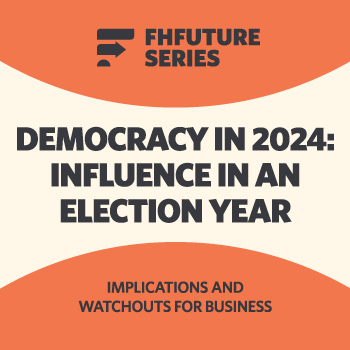Upping your game in Corporate Reporting
Last week The Financial Reporting Council (FRC) published a review on the state of reporting in the UK. The outcome wasn’t great.
“Businesses have been told to up their game in key elements of corporate governance and reporting, after a review found a multitude of basic errors and misapplications of the UK corporate governance code in reports.”
Source: City AM
Of course, the FRC’s Revised UK Corporate Governance Code 2018 does not set out a rigid set of rules, rather, it offers flexibility through the application of ‘Principles’.
The Code is designed to improve your company’s relationships with a wider range of stakeholders and reinforce a healthy culture in your workforce.
That’s great, but how do we do it in practice?
Building investor confidence
According to movie director and Toy Story writer Andrew Stanton, the greatest story commandment is, “Make me care!”
Instead of reporting, communicate. Rather than writing about your strategy, write it for your audience.
“No one ever made a decision because of a number. They need a story,” explains Dan Kahneman, who won the 2002 Nobel Prize in economics for his pioneering work on the psychology of decision-making.
Even the best social science says storytelling lies at the heart of memorable and persuasive communications. It’s what Plato called “The art of winning the soul by discourse.”
Reporting communication is about more than producing a report. It’s about more than words and numbers, it’s about making people who are vested in your company feel part of who you are and what you do. It’s about what they value – every employee, every customer, every shareholder.
Ah, I hear you say, but ‘value’ means something different for different people – what the public expects may not be what shareholders want.
Less them, more we
You are right. As customers, business partners, employees, society and shareholders, we’re all vested in the success of the company, where success is not necessarily defined in financial terms.
Now more than ever a myriad of external influences impact your business and in turn your corporate narrative. Your story must respect how each stakeholder is affected in a different way. It’s the authentic way to connecting with – and connect together – your various stakeholders.
The polarised world we live in can put fear into communicating your beliefs and value. Yet our UK based survey, The Dying Days of Spin, reveals that 38% of consumers believe if a company explains why they have taken a position on an issue that is important to them, they are extremely or very likely to continue to support them, even if they disagree.
Beyond reporting
Baseball legend Yogi Berra once said “In theory, there is no difference between practice and theory. In practice, there is.”
The first step to putting the Code into practice is a change in mindset. We’ve written on what this looks like before which you can read here.
The second step goes beyond reporting. Only a consistent and holistic approach to your corporate communications will positively engage stakeholders, attract long-term investment and affect the bottom line, because after all:
What is corporate reporting without active reputation management?
What is reputation management without a brand you can trust?
What is a brand without business purpose?
What is business purpose without employee engagement to make it happen?
What is employee engagement without corporate reporting to build confidence externally?
We are all investors
For more information on how we can ignite your brand, purpose, reporting communications and reputation management, view our website weareallinvestors.com
Richard Costa, Reporting Communications
Find Out More
-
Democracy in 2024: Influence in an election year
May 2, 2024
-
Platinum CMS Award
March 13, 2024


